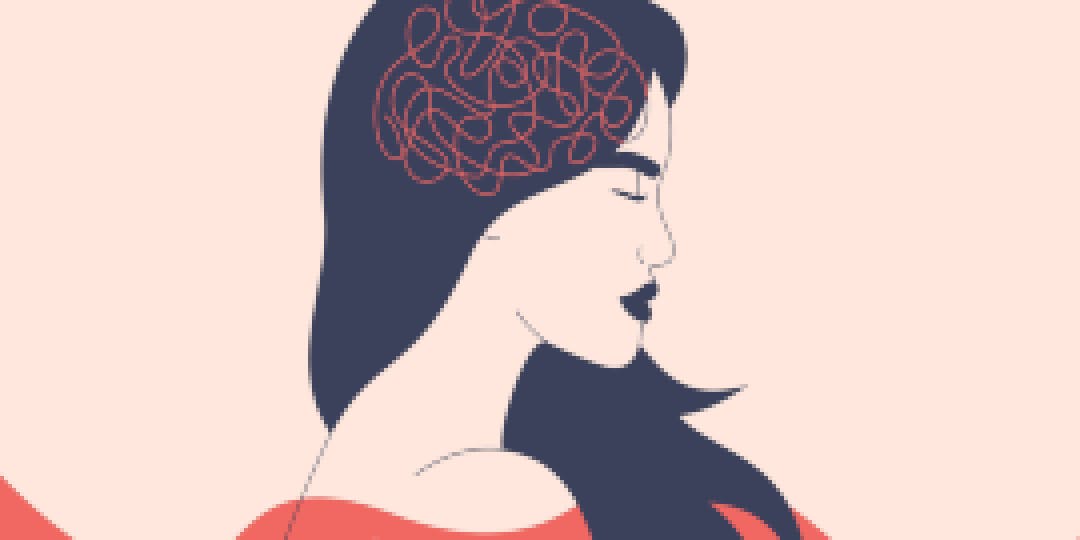
Over the course of Vanessa Marie Bustamante’s 13-year career in academia, one thing that’s never waivered is the part of her identity firmly rooted in being an “average homegirl.” It’s something that the California-based educator at MiraCosta College, who also goes by the moniker Homegirl Doctora, says often chafes against more rigid, traditional campus culture. And it’s left others like Bustamante—Latinas in higher education who dress differently, mix English with Spanish, voice their opinions loudly—feeling alienated.
Bustamante and her close circle of friends are out to change that. She’s part of a group of five Chicana educators who celebrate the chola subculture, which Bustamante says was once associated with gangs but now represents strong women who are leaders in their communities. Together, they founded La Chola Conference and are partnering with the University of Colorado at Boulder for the event’s first in-person gathering this fall.
The theme “High Visibility Hynas: Cholas in Pop Culture” will explore how the concept of the chola is evolving as it becomes more mainstream, Bustamante says, and create a space where attendees can shed the masks they wear in higher ed and be themselves. The conference was a long-held dream for the founders, which include leaders from the Washington-based Chicana community group Chola Vida.
We caught up with Bustamante to talk about the conference, chola visibility in academia and how those two things tie in with what meaningful diversity, equity and inclusion efforts look like in higher education. The following interview has been edited for length and clarity.

EdSurge: How would you define what a chola is?
Vanessa Marie Bustamante: I think everybody will have a different definition, but for us as a collective, we really focus on la chola being someone who puts in work for her community. I'm still putting in work for my community, even having a doctorate title or whatever papers academia wants to give me. It's being able to go back into my barrio communities and lifting and bringing people up and saying, “You know what? We can help each other out. This is how I got you.” [That’s] the true essence of who la chola is. She's a chingona, she's someone who's a trailblazer, who continuously puts in work for the community.
The first La Chola Conference, held last April, focused on the scholarly work and study of cholas. How did the idea for a conference around this community arise?
In this group, a lot of us were pursuing education in different realms. [We] were just having a lot of trouble navigating not just the system of trying to get resources on campus or trying to navigate certain admissions processes and things like that. It was also in the looks that we would get being on campus, dressing or doing our makeup like we do on campus. Just getting awkward stares, awkward conversations with professors.
We would share these things with each other. I'd been in the organization for eight years already and, one day we were just kind of all together talking after an art show, and a lot of us started saying, “Wouldn't it be great if we could find others like us across the country? People who are navigating higher education, still staying true to who they are.”
I ended up reaching out to the higher ed institution that I was working at and started trying to get things hosted at the campus. And I was met with so much pushback. They didn't like the idea of having something like this because of the criminal identity that a lot of people mistake cholas for having.
Ultimately the conference was hosted on Zoom due to the pandemic. What were some of the topics discussed?
We had people from all over the country who identified as cholas or who were doing scholarly work as it related to cholas. We explored so many topics: chola motherhood, cholas in academia, chola Ph.D.s. Sharing real issues of them navigating these institutions and, and finding out, you know, this doesn't just happen here in LA where we were at, right?
It was happening in all of these different states all across the country, these cholas not being taken seriously or folks wanting them to reframe their work or reframe their research proposals, to acclimate them to the institutions. And so it was really us wanting to break into these institutions and show that we are here. And we are creating our own support systems, even when the institutions are not creating them for us.
You work in student support at a college. How does cultural visibility tie in with student success?
If you walk onto a college campus and you don't see artwork that represents your community or struggles that your community has faced, you're not going to feel as connected.
I think faculty, they're really the people that speak up and are able to move things along. They bring panels or they bring groups. But I haven't seen any administrator, like large-level entities, move something like this along yet.
With a lot of campuses launching programs like Project Rebound or a transition program [for formerly incarcerated people], we're moving in the right direction where people are going to feel more included.
But also, the counselors that are assigned to those programs, do they understand those dynamics? When a student comes in and talks about their barrio neighborhood, do they understand what that means? If they did have people that really shared in that experience, there would be more connection to the student.
How have people responded to opportunities to increase visibility of chola scholars and issues?
I feel like people left the conference last year feeling that the work that they're doing is important and valid and changing things. I heard the word “chingona” so much, like, “I feel like such a chingona now.” Some of the response you were getting was that people had felt invisible on their campus.
Some people were like, “I wanna invite like my tía to this next year.” Or a family member, like a cousin, because they've felt invisible or they've been criminalized all their lives, and they feel like they can't get out of that. There’s a harsh perception that’s always surrounded barrio culture in general.
Even from a higher ed perspective, it's just kind of like, “Wow, what a great way to get people to your campus.” People from your local community that could be going to your school to do some type of program, whether it's a certificate program or a degree granting program or even a trade program.
What is your perspective on how diversity, equity and inclusion work is going in higher ed?
I think [La Chola conference host, the University of Colorado at Boulder] is moving to support and to actually engage their communities of color, their low-income communities, their impacted communities. Some people are actually putting the action behind their equity, diversity and inclusion policy. I think a lot of colleges and universities aren't there. They're just still talking about it and, you know, just talking about how they're going to do all these great things.
What impact do you hope your work has?
I think a lot of us are hoping that the impact will be that more people occupy spaces [and] realize that these spaces are for them. For those currently in academia who are doing research or working within some type of academic institution, hopefully they also realize that they bring a lot to the table, that they should apply for that next job, that they should apply for that research assistantship or whatever it is that they're doing. It’s really more so to hopefully empower our community to see their value, to see that they do bring valuable work to the table.
What else about this conference makes it unique?
This conference was created by people who have that identity and have that experience. We never changed ourselves to acclimate to the educational space. We've kept our identities and we created something from that while also carrying those trials and tribulations that we endured in the educational setting. So I think it's very unique in that sense. That's why I'll say our organizers were really just like a couple of homegirls who sat around a fire and came up with this conference.
When you say you’ve kept your identities, do you mean you’ve stayed true to the way you dress or speak? Or something else?
I think la chola lives within, and so it's being able to carry yourself in that way. To be in those settings and push back, like, “Why can't I do this as my research topic? What in your policy says that I can't?” It's being able to speak up and, in a sense, talk back.
It's being able to engage with students, in English and Spanish and being like, “Hey, what's up?” when you're not supposed to talk to students like that. When you're supposed to just be like, “Hello, how can I help you?”
It's those types of things, navigating that system when it's telling you to be one way, but you stay true to your language, like how you talk, the way you motivate students.
CORRECTION: A previous version of this article incorrectly identified Bustamante as a member of Chola Vida.

